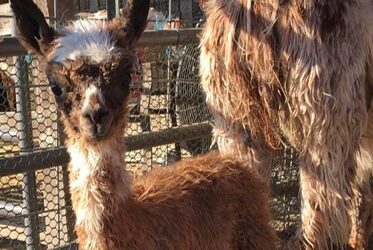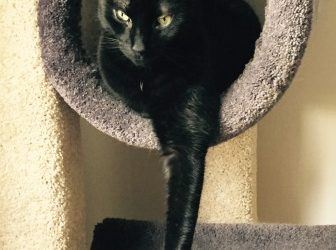Photo by Lahiru Maramba on Unsplash
How to Pretend You’re Mousing When You Aren’t
Theodora was an all white British Shorthair female cat born in the UK who had come to live with us in Connecticut. She eventually made a feline friend of a stray we named Tux because he looked like he was wearing a tuxedo.
Of the 15 cats who had been present when Theodora first arrived, only Theodora was still with us when Tux showed up. There were no male cats to fight with, so Tux hung around hoping for a handout.
Tux was a hobo, drifting from place to place, eating whatever he could catch or find, and not caring how clean he kept himself. This hardly sounds like the type of cat you would expect Theodora to befriend. Theodora, who had attended Oxford University in England, was always perfectly clean and looked elegant.
Susan, Theodora’s person, came for a visit and took pity on Tux, who was living outside our house hoping we would adopt him. She let him in through the kitchen window and gave Tux something to eat. That was all it took for Tux to decide that this was a good place to stay.
While visiting us, Susan took Tux to the vet for a check up, vaccinations, and neutering. Now that he had a home, Tux was expected to look and be respectable in every way.
Tux decided it was time to catch up on eating, and he began to grow quite large in girth. He had a large, wide, round head (Garfield like) with ears that were a bit flat and stuck out to the sides. His right ear looked like someone had chewed on it. His body soon filled out to match his large head, and he grew quite plump and hefty. I guess Theodora insisted that he wash, because he soon began to clean himself every day.
Early one morning, as I set the coffee to brew, I spied a field mouse walking on the kitchen counter. Now at this time, both Theodora and Tux were in the kitchen, lounging on the counter at the other end of the kitchen, completely ignoring the mouse.
“Well, you lazy fellows,” I remarked, partly annoyed, but mostly amused, “Obviously we feed you far too well. Here is a mouse, making itself quite at home, and here are both of you ignoring it. I think we will have to suspend feeding you until you rid the kitchen of this mouse.”
Two astonished pairs of eyes followed me as I said down at the table.
“No food until we catch the mouse?”
“Unheard of!”
“Mistreatment!!”
“Appalling!”
I’m sure both cats were fed their regular dinner that night. But the next morning, to my complete amazement, there was Tux, waddling his chubby self across the room, chasing the mouse.
Theodora, of course, didn’t catch mice. She was watching the chase from the counter, where I saw her surreptitiously giving Tux tips on which way the mouse had gone. She would lick a paw and then point it in the appropriate direction while pretending to wash her face.
Tux, who hadn’t hunted in some time, and whose girth was quite expanded, was struggling to keep up with the mouse. Then the mouse dashed behind the legs of an electric frying pan. Suddenly, everything on the counter flew into the air all at once as mouse and enormous cat went sailing through the air. The mouse ran out the window, or maybe it was the door, and peace and quiet returned.
Tux was immensely proud of himself for chasing the mouse away, and Theodora was proud that she had helped without actually chasing the mouse at all.
Tux came over and lay down on my feet and purred and purred, louder than ever.
Theodora pretended nothing had happened. How typical of Theodora!!









0 Comments